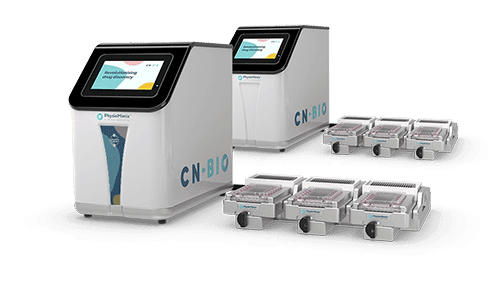- Partnership focused on validation of novel Organ-on-a-Chip infection models
- Human-relevant single and multi-organ SARS-CoV-2 infected models developed using Innovate UK grant
- 3D lung cell culture technology to support more efficient and accurate COVID-19 therapeutic discovery and development
CN Bio, a leading Organ-on-a-chip Company (OOC) that designs and manufactures single- and multi-organ microphysiological systems (MPS), today announced a research collaboration with the Infection Innovation Consortium (iiCON), a global collaborative infectious disease R&D programme, to validate the next generation of COVID-19 research tools.
iiCON’s £174 million programme brings together industry, academia, and clinicians to accelerate the discovery, development and deployment of new treatments and products – saving and improving millions of lives through collaborative innovation. Led by the Liverpool School of Tropical Medicine (LSTM), its partner members are Unilever, Evotec, Liverpool University Hospitals Foundation Trust, University of Liverpool, and Infex Therapeutics.
Under the terms of the agreement, iiCON lead partner, LSTM, a world-leading institute for infectious disease research, will independently validate CN Bio’s novel lung and lung-liver models, designed to advance novel SARS-CoV-2 drug discovery and development.
Expanding on the project with Innovate UK, within nine months, CN Bio’s perfused lung models are to be transferred to LSTM for validation, to demonstrate the ability of the PhysioMimix systems to support the full viral life cycle of SARS-CoV-2 and facilitate testing with anti-viral compounds. LSTM will validate the systems’ use in high containment laboratories (CL3) for studies with infectious viral materials and validate the system’s potential to identify PK/PD indices and PD Targets for the development of safe and efficacious dosing regimens of new antiviral therapeutics.
Following this initial evaluation, it is intended that iiCON will have access to the PhysioMimix technology and its associated 3D tissue models for a variety of translational infectious disease projects. A successful outcome from the collaboration will support researchers globally by providing advanced insights to SARS-CoV-2 infections in humans and enable CN Bio to expand its portfolio of OOC models to address a broader and more diverse range of therapeutic areas.
Dr Tomasz Kostrzewski, Director of Biology, CN Bio, said:
“iiCON’s commitment to collaborative innovation has enabled our pioneering partnership with consortium lead, LSTM. This collaboration will provide access to the institute’s world–leading expertise in infectious disease research, in addition to the consortium’s outstanding industry links.
“As a result of this collaboration, it is our joint intention that the data generated will be published, providing us with proof that supports the adoption of PhysioMimix microphysiological systems into industry, where they can be used as translational tools to accelerate understanding of SARS-CoV-2 infection and consequently, accelerate the development of new therapeutic options.”
Professor Giancarlo Biagini, iiCON Platform Lead, Head of the Department of Tropical Disease Biology at LSTM, and UKRI Innovation Scholar, said:
“Facilitating the industry academic interface to drive forward transformative technologies and fast-track innovative health solutions to our most pressing global infectious disease challenges is at the heart of iiCON’s purpose.
“As part of the consortium, LSTM is delighted to be entering into this key agreement with CN Bio. By leveraging emerging organ-on-a-chip technology, we aim to develop pre-clinical platforms that accelerate translational research of new therapeutics to manage and treat major human infections, including emerging and high consequence infectious diseases such SARS-COV-2.”
For more information about CN Bio’s Organ-on-a-Chip technology, visit:
https://cn-bio.com/organ-on-chip/
- Press release: CN Bio awarded Innovate UK grant to develop single and multi-organ models for COVID-19 research (1st March, 2021)
- Jain U. Effect of COVID-19 on the Organs. Cureus. 2020;12(8):e9540. Published 2020 Aug 3. doi:10.7759/cureus.9540

